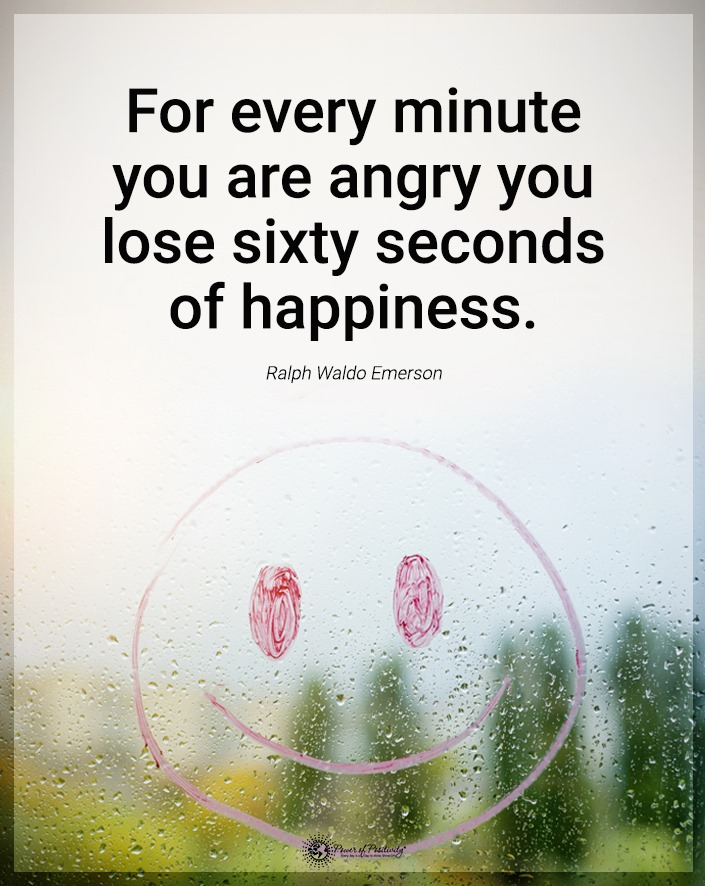Forgiving others cleanses your soul and sets you free.
Picture yourself lugging around a backpack, its weight increasing with every grudge you hold. The burden becomes unbearable, affecting every step you take. This is the weight of a grudge, an emotional load that can decrease your pursuit of peace and happiness. This common scenario vividly illustrates the toll of holding onto grudges. Fortunately, forgiving others can offer the relief you need.
This article will look into how forgiving others can set your soul free. We’ll dive into forgiveness’s emotional and spiritual benefits and how it can transform your life. By understanding the profound impact of forgiveness, you may find the answers you’ve been seeking to let go of past hurts and embrace a more peaceful and fulfilling life.
So, let’s dive in and discover why forgiving others is not just an act of kindness but a powerful tool for personal liberation.
What is Forgiveness?
Forgiveness is the conscious, deliberate decision to release feelings of resentment or vengeance toward someone who has harmed you, regardless of whether they deserve your forgiveness. It doesn’t mean forgetting, condoning, or excusing the offence.
Instead, it’s about freeing yourself from the negative emotions that keep you tethered to the pain of the past. Think of forgiveness as a gift you give yourself. It’s a way to reclaim your peace and carry on with your life, free from the burden of old grudges.
Common Misconceptions About Forgiveness
Several misconceptions about forgiveness can make it challenging for people to embrace this liberating practice:
1 – Forgiveness equals forgetting
One of the most common myths is that forgiving others is the same as forgetting. People often believe that if they forgive, they must erase the memory of the wrongdoing. However, forgiveness doesn’t mean someone got one over on you. Instead, it involves acknowledging the hurt but choosing not to let it control your emotions or actions.
2 – Forgiveness is a sign of weakness
Another misconception is that forgiving others means you are weak. On the contrary, forgiving someone who wrongs you takes tremendous strength and courage. It’s not about being a doormat or allowing others to walk over you. Instead, it’s about taking control of your emotional well-being and refusing to let the actions of others dictate your happiness.
3 – Forgiving means reconciling with the one who hurt you
People also often believe that forgiveness means reconciling with the person who hurt you. While reconciliation can be a part of the forgiveness process, it’s not always necessary. Forgiveness is a personal journey that you undertake for your benefit. You can forgive someone without necessarily continuing a relationship with them, especially if maintaining that relationship would harm you.
Psychological and Emotional Benefits of Forgiving
Forgiveness offers numerous psychological and emotional benefits that can significantly enhance well-being. When one forgives, one lets go of anger, resentment, and bitterness that can consume one’s thoughts and emotions.
This release can lead to reduced stress and anxiety, as holding onto negative emotions can be mentally and physically exhausting.
- Psychologically, forgiveness can improve your mental health by reducing symptoms of depression and increasing feelings of empathy and compassion. When you forgive, you shift your focus from dwelling on past hurts to embracing a more positive and hopeful outlook. This change in perspective can foster a greater sense of inner peace and emotional stability.
- Emotionally, forgiving others can lead to healthier and more fulfilling relationships. By letting go of grudges, you open yourself to experiencing more profound connections with others. It doesn’t just apply to the person you are forgiving; it can also improve your interactions with everyone around you. When you’re not weighed down by unresolved anger, you’re more likely to engage in positive social interactions and build stronger, more supportive relationships.
- Forgiveness can also lead to improved self-esteem and self-worth. When you choose to forgive, you affirm your value and worthiness of peace and happiness. It empowers you to take control of your emotional life and to live in a way that aligns with your values and principles, rather than being controlled by the actions of others.
- Forgiveness is a powerful and transformative act beyond simply letting go of negative feelings or anger. It’s about freeing yourself from the emotional chains of the past, reclaiming your peace, and opening the door to a healthier, happier future.
By understanding what forgiveness truly means and dispelling common misconceptions, you can experience the profound psychological and emotional benefits of this freeing practice.
The Emotional Weight of Holding Grudges Instead of Forgiving
Holding onto grudges can have a profound impact on both your mental and physical health. When you harbour resentment or anger towards someone who has wronged you, it keeps your body under constant stress. This chronic stress can lead to a range of health issues, such as high blood pressure, a weakened immune system, and an increased risk of heart disease.
Mentally, grudges can contribute to anxiety, depression, and other mood disorders. The persistent focus on negative emotions can drain your energy and affect your ability to think clearly and make decisions.
Common Feelings Associated with Grudges: Anger, Resentment, and Sadness
Negative emotions, including anger, resentment, and sadness, are sources of grudges:
- Anger is a natural response to being hurt or wronged. But when it lingers, it can become corrosive.
- Resentment builds when you feel that someone has mistreated you, and it can fester if left unaddressed.
- Sadness often accompanies grudges, as the hurt you experienced can lead to feelings of loss and disappointment.
These emotions can create a cycle of negativity that is hard to break, keeping you in the past and preventing you from enjoying the present.
How Holding Onto Grudges Can Affect Daily Life and Relationships
Holding onto grudges can permeate every aspect of your life, affecting your daily activities and relationships. For instance, you might avoid places or events where you encounter someone who wronged you. As a result, you limit your social interactions and experiences.
In relationships, grudges can create a barrier to intimacy and trust. You might become overly defensive or suspicious, making it difficult to form or maintain healthy connections with others. Grudges can impact your productivity and relationships with colleagues at work. Unresolved anger and resentment can spill over into your professional life.
How Forgiving Others Heals
So why is forgiveness such a valuable source of relief?
The Psychological Process of Forgiveness and Its Effects on the Brain
Forgiving others involves a series of psychological steps that can lead to significant changes in your brain. When you decide to forgive, you shift your focus from the negative emotions associated with the hurt to more positive and empathetic feelings. This shift can reduce activity in the areas of the brain associated with stress and fear, such as the amygdala.
At the same time, it can increase activity in areas linked to empathy and emotional regulation, like the prefrontal cortex. This neurological shift can help you feel more in control of your emotions and less overwhelmed by anger and resentment.
Forgiveness Reduces Stress and Anxiety
Forgiveness can significantly reduce stress and anxiety by breaking the cycle of negative thinking that grudges perpetuate. When you let go of a grudge, you release the constant tension and worry that comes with holding onto hurt and anger. This release can lower your cortisol levels, the stress hormone.
Thus, you can have a calmer and more relaxed state of mind. Additionally, forgiveness can improve your overall mood and outlook on life, making coping with everyday stressors and challenges more manageable.
The Spiritual Aspect of Forgiving
Forgiveness is a significant part of many cultures and religions worldwide.
- In Christianity, forgiveness is seen as a divine act, and Jesus’ teachings encourage us to forgive others as God forgives.
- In Buddhism, forgiveness is a vital component of the path to enlightenment. It helps to release negative karma and achieve inner peace.
- Islam also emphasizes forgiveness, urging believers to pardon others and seek Allah’s mercy.
These perspectives highlight the universal importance of forgiveness in promoting harmony and spiritual growth.
The Concept of Inner Peace and Soul Freedom Through Forgiveness
Forgiveness is often described as a path to inner peace and soul freedom. When you forgive, you let go of the emotional chains that bind you to past hurts. This release can lead to a profound sense of peace, as you are no longer weighed down by anger and resentment.
Forgiveness allows you to reclaim your emotional well-being and opens the door to a more fulfilling and harmonious life. This inner peace is a fleeting feeling and a deep-seated sense of freedom from releasing negative emotions and embracing compassion and understanding.
The Role of Forgiveness in Spiritual Growth and Enlightenment
Forgiveness is a crucial aspect of spiritual growth and enlightenment. By forgiving others, you practice humility, empathy, and compassion, which are essential qualities for spiritual development.
Forgiveness helps you transcend your ego and connect with a higher sense of self, where love and understanding prevail over anger and hatred. This spiritual transformation can lead to greater enlightenment as you align your actions and thoughts with the principles of peace and harmony.
Ultimately, forgiveness can be seen as a powerful spiritual practice that benefits you and contributes to a more compassionate and understanding world.
Five Steps to Forgiving Someone
Here are the steps to forgiving someone who has harmed you:
1 – Recognizing and Accepting the Hurt
The first step in the journey to forgiveness is recognizing and accepting the hurt that has been caused. It’s vital to acknowledge your feelings of pain, anger, and betrayal instead of suppressing them. By confronting these emotions, you allow yourself to understand the depth of the hurt and its impact on you. Acceptance doesn’t mean that you condone the behavior – it means you acknowledge it as part of your experience.
2 – Understanding the Other Person’s Perspective
Empathy plays a crucial role in forgiveness. Understanding the other person’s perspective can help you see the situation in a new light. This doesn’t mean justifying their actions but recognizing that everyone has their struggles and reasons for behaving the way they do. This broader understanding can make it easier to let go of resentment and move towards forgiveness.
3 – Letting Go of Resentment and Choosing to Move Forward
Letting go of resentment is one of the most challenging aspects of forgiveness. But it’s also the most liberating. It involves consciously releasing your grip on the anger and bitterness you’ve been holding onto. It’s about focusing on the present and future rather than being stuck in the past. This step may take time and effort, but it’s essential for achieving emotional freedom.
4 – Practical Tips for Practicing Forgiveness in Daily Life
With some simple strategies, practicing forgiveness can become a part of your daily life. Mindfulness and meditation can help you stay grounded and centred, making it easier to release negative emotions. Journaling your feelings can provide a healthy outlet for processing your thoughts and experiences. Talking to a trusted friend or counsellor can offer support and guidance as you navigate the forgiveness process.
5 – Challenges in Forgiving: Common Obstacles People Face When Trying to Forgive
Forgiveness can be a difficult journey, with several common obstacles. One major challenge is the fear of being hurt again. Forgiving someone doesn’t mean you have to put yourself in a position to be hurt once more, but this fear can make it hard to let go.
Another obstacle is the belief that forgiving someone lets them off the hook or minimizes their wrongdoing. It’s important to remember that forgiveness is about your peace, not your absolution.
Overcoming these challenges requires patience and self-compassion. Remind yourself that forgiveness is a process, not a one-time event. It’s okay to take small steps and to seek support when needed. Practicing self-care and focusing on your well-being can also make it easier to release negative emotions. When you feel overwhelmed, remind yourself of the benefits of forgiveness and the peace it can bring to your life.
Long-Term Benefits of Forgiveness
Forgiveness can significantly improve mental and emotional health. By letting go of grudges, you reduce stress and anxiety, leading to a calmer and more balanced state of mind. Forgiveness can also decrease symptoms of depression and improve your overall mood. This positive shift in mental health can enhance your quality of life and increase your overall happiness.
Better Relationships and Social Connections
Forgiving others can improve your relationships and social connections. When you’re not weighed down by anger and resentment, you can interact more positively with those around you, leading to stronger, more supportive relationships. Forgiveness can also enhance your ability to empathize with others, making you a better friend, partner, and family member.
Enhanced Personal Growth and Self-Awareness
Forgiveness increases personal growth and self-awareness. By being forgiving, you better understand your emotions and behaviors. This self-awareness can lead to greater emotional intelligence and personal development. Additionally, forgiving can empower you to take control of your emotional well-being and live in a way that aligns with your values and principles.
Final Thoughts on the Many Ways Forgiving Sets the Soul Free
Forgiving is not just an act of kindness towards them; it’s a powerful tool for freeing your soul. You can embark on a transformative journey toward inner peace and happiness by understanding the true meaning of forgiveness, overcoming common misconceptions, and recognizing its psychological, emotional, and spiritual benefits.
The process of forgiveness may be challenging, but the rewards are profound. Letting go of grudges and embracing forgiveness opens the door to a healthier, more fulfilling life. So, take the first step today and experience the freedom of forgiving others.
The post Here’s Why Forgiving Others Sets Your Soul Free appeared first on Power of Positivity: Positive Thinking & Attitude.







